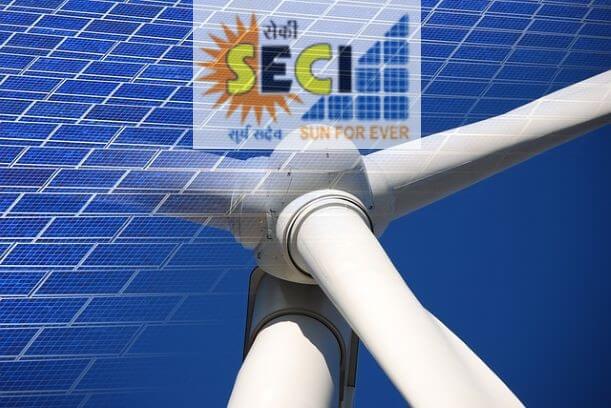

India’s first hybrid solar and wind tender, originally floated back in May by the Solar Energy Corporation of India finally closed yesterday. The tender which had since been extended multiple times due to a lack of bidder interest was undersubscribed by 150 MW, with only Adani Green Energy and Softbank-backed SB Energy submitting official bids. There isno word yet if there will be any further action to stimulate response.
In total, the tender requesting for bids for 1,200 MW of renewable hybrid projects, aggregated only 1050 MW in bids from just two bidders. Adani Green bid for the highest capacity at 600 MW followed by Softbank group-backed SB Energy which bid for 450 MW.
According to industry experts, the aggressive ceiling tariff for the project which had been fixed at Rs 2.70/kWh was the main deterrent in garnering mass interest. At that price point with the added safeguard duty, the projects for most bidders became financially unviable.
Another deterrent was the difficulty in finding project locations that support the generation of both solar and wind energy. Vinay Rustagi, managing director at solar consultancy Bridge To India, said, “Hybrid projects may not be the best solution to reduce the cost of power, though it has advantages in terms of economising land and transmission infrastructure for the project. The problem is that if you choose a very good solar site, it will not be optimal for wind and vice versa.” Of course, the key reason cited for these projects is to make poer more dependable, with solar in the daytime and wind in the evenings and night. Of course, nature doesn’t always such a schedule.
The nodal agency for renewable projects tendering in the country had initially tendered with an ambitious 2,500 MW of ISTS-connected wind-solar hybrid power projects (tranche-I). Later, the capacity of ISTS-connected wind-solar hybrid power project was reduced to 1,200 MW and the ceiling tariff reduced from Rs 2.93/kWh to Rs 2.60/kWh and later increased to Rs 2.70/kWh. The maximum bid capacity had been increased from 500 MW to 600 MW. However, the minimum bid capacity remained the same at 200 MW with at least 50 MW of project capacity being proposed at each project site. Earlier, the scheduled date of commissioning was 18 months from the date of issuance of the letter of award. This had been amended and for the scheduled date of commissioning to be 18 months from the effective date of the PPA. Financial closure must be achieved within 12 months of PPA.
Based on the early response from SECI, nothing is official as of now. The project capacity might be reduced and awarded to the only two bidders or the bid might be reopened after making further amendments. But a cancellation can be ruled out, especially hen the bids have been made with the price ceilings in place .
In a key step toward advancing clean energy adoption, Ahmedabad headquartered IRM Energy Ltd has…
Biofuels conglomerate Aemetis has announced that its subsidiary in India – Universal Biofuels – has…
The Greater Noida Industrial Development Authority (GNIDA) has commenced construction of a 300-tonne-per-day (TPD) bio-CNG…
The World Earth Day – with this year’s theme on ‘Our Power, Our Planet’ –…
In a significant step toward promoting decentralized waste management and clean energy, Tata Steel UISL…
Jaipur headquartered bioenergy player Rajputana Biodiesel Ltd has announced that its subsidiary, Nirvaanraj Energy Private…